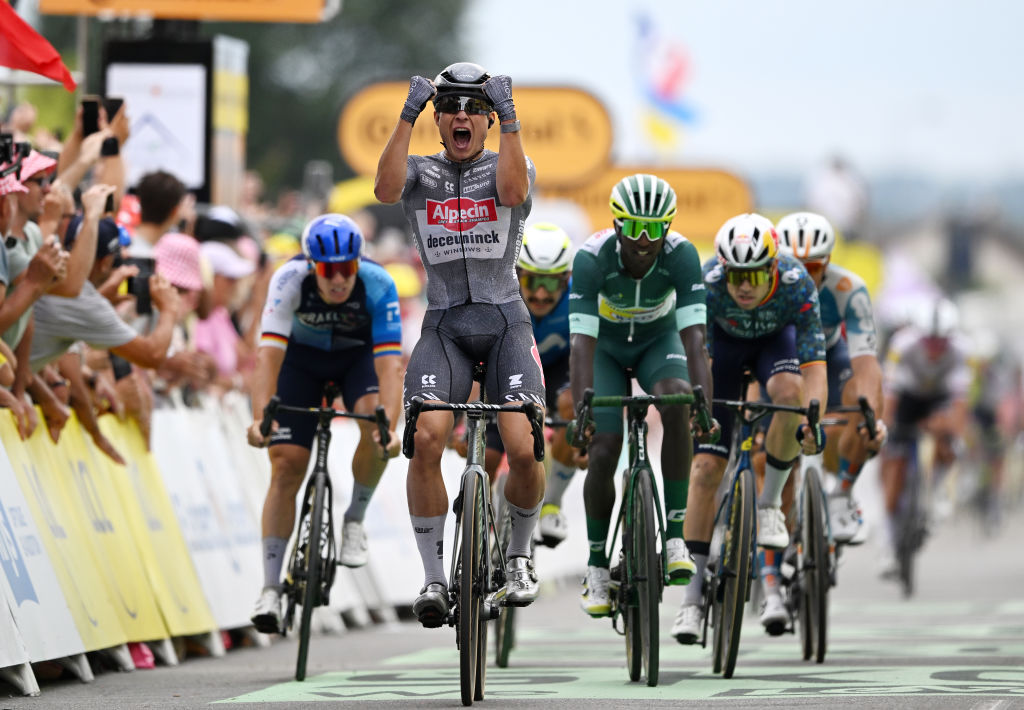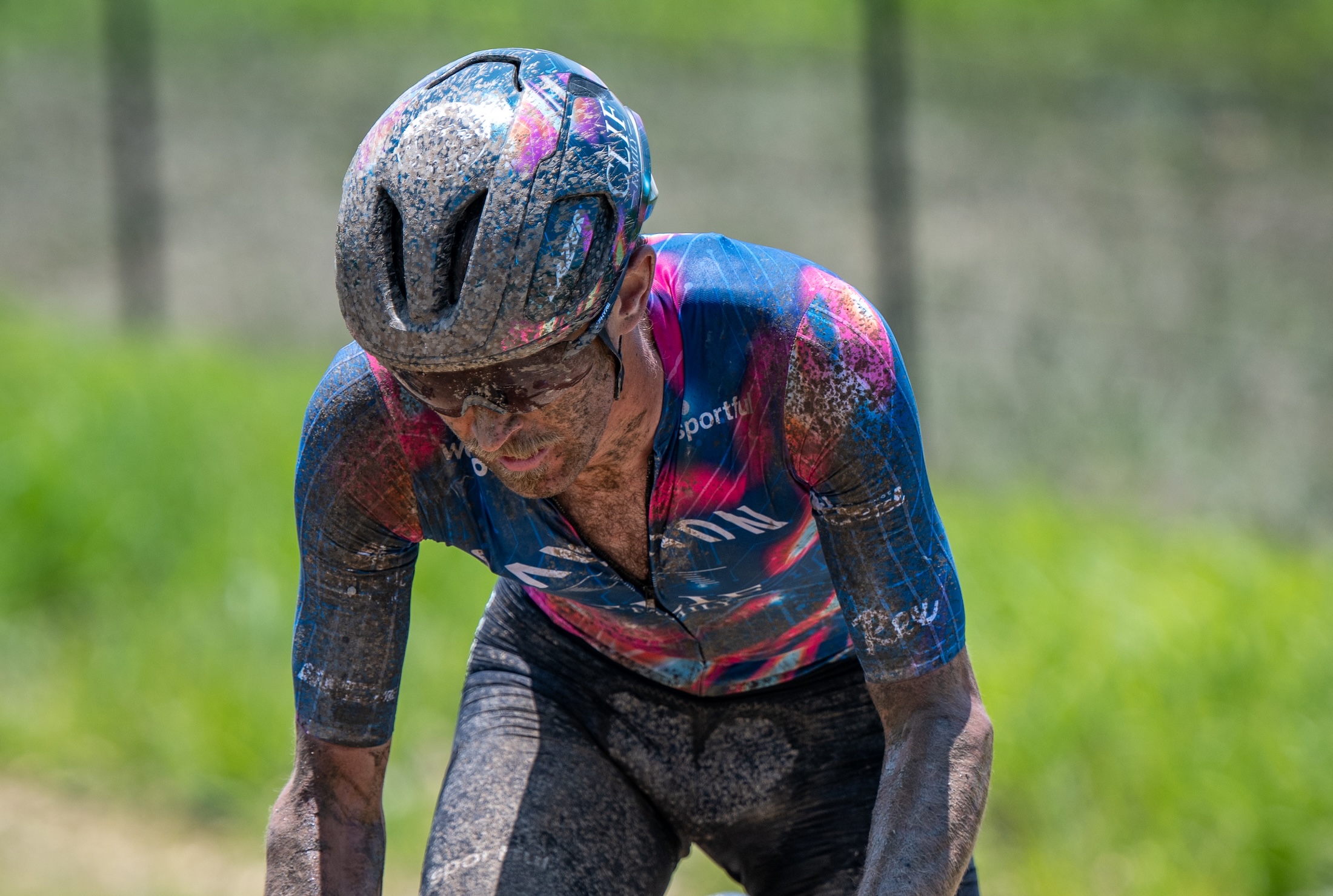UCI confirm trial ban of team radio at 2024 summer races and yellow card punishment plans in 2025
341 crashes logged on UCI database as SafeR begins to study weekly cases

The latest race content, interviews, features, reviews and expert buying guides, direct to your inbox!
You are now subscribed
Your newsletter sign-up was successful
The UCI will restrict the use of team radio and begin to symbolically punish riders with yellow cards from August 1 and impose sanctions in 2025 as the SafeR stakeholders group works to improve race safety.
The UCI tested the modification of the ‘three-kilometre’ rule, the point where times for the general classification and the simplification of calculating time gaps in sprint finishes, during the Tour de France and have decided to press on with more changes and trials in the final months of 2024.
A test restriction on the use of team radio or ‘earpieces’ will be applied during three stages of the Tour de Pologne (12-18 August) and at the UCI ProSeries event Vuelta a Burgos (5-9 August).
This will limit the information riders receive from their team vehicles and directeur sportif during races, forcing the riders to decide team tactics amongst themselves and also watch out for any safety hazards.
The UCI first attempted to ban earpieces in 2011, even testing a full ban during the Tour de France on stage 10. Now the tests are back.
The yellow card punishments will be under trial until the end of 2024 in WorldTour and Women’s WorldTour races, with the UCI saying ‘yellow cards will represent a sanction listed in the race communiqué but will not physically exist and will not result in any restrictions in terms of participation in following events.”
At the end of the 2024 season an evaluation of the yellow card system will be carried out by SafeR and approved by the UCI before sanctions are imposed from January 1 2025.
The latest race content, interviews, features, reviews and expert buying guides, direct to your inbox!
The yellow card system will then also be extended to events in the UCI ProSeries (Men and Women Elite), the Olympic Games, the UCI World Championships (Men and Women Elite and Under 23) and Continental Championships (Men and Women Elite and Under 23).
The UCI warned that yellow cards in 2025 will result in “different periods of suspension depending on the number of yellow cards received by any individual over a given period.”
“Yellow cards will be issued for offences likely to pose a risk to the safety of the competition and will apply to anyone present in the race convoy (riders, directeur sportif and race official motorbike and car drivers), who might engage in behaviour that could jeopardise the safety of the event.”
The UCI rule book lists 21 possible incidents that can lead to race officials punishing people with yellow cards.
The proposed punishments are disqualification and a seven-day suspension for two yellow cards in the same race, a 14-day suspension for three yellow cards in 30 days and a 30-day suspension for six yellow cards in one year. If a rider is suspended during a race for multiple yellow cards, they will be expelled from the race but keep any results and UCI points gained during the race.
These include disposing of waste outside the litter zone, holding onto a team car or getting mechanical assistance from a moving vehicle, sheltering behind the slipstream of a vehicle and irregular feeding (sticky bottle).
The SafeR initiative will only be fully operative for the 2025 season, with key stakeholders voting in the spring to oust Chief Executive Officer Jaap Van Hulten less than a year after he was selected for the position.
SafeR is controlled and funded by the UCI, the AIOCC race organisers group, the AIGCP teams association, the UNIO women’s team association and the men’s and women’s CPA riders association.
Safety became a major issue in the spring after crashes in the men’s Dwars door Vlaanderen, Itzulia Basque Country and other races.
The SafeR Case Management Committee – comprising analysts and representatives of teams, riders and organisers – has begun to meet on a weekly basis to review any race incidents, propose disciplinary measures, investigate safety concerns and consider recommendations.
The UCI said on Monday that the UCI Race Incidents Database, established in partnership with Ghent University in Belgium, had logged 341 crashes, plus other ‘near miss’ incidents.
Analysis showed that around 49% of crashes occur in the last 40km of a race, involving on average two to three riders. They frequently occur just before climbs, cobblestone sectors, and sprints, as well as on slippery roads, near/on traffic infrastructure, or during descents.
The UCI said the SafeR analysts will make informed recommendations for safety improvements based on trends observed. They cited the prevalence of crashes involving young riders and so underscored the need for enhanced rider education. The UCI also mentioned establishing a framework concerning the number of neo-professionals who can take part in certain events.
The UCI also confirmed that SafeR is working on the second phase of a study of barriers used to protect the finish zone of a race, to define new standards in terms of design, size, strength, and impact absorption of barriers separating the riders from the public.
Race organisers and local authorities are, in theory, legally responsible for race safety, but it is virtually impossible to fully protect the riders during hundreds of kilometres of race routes. SafeR is the first time all the sport's stakeholders will work together to improve race safety.
“50% of crashes are due to rider behaviour, with 50% due to other factors, such as obstacles that are not signalled or the speed of the peloton,” UCI President David Lappartient said in the spring.
“I'm not here to say it's all their fault; it could just be a brief moment of inattention. That's why we want to introduce a principle of yellow and red cards, like in football, so that dangerous behaviour is better punished.”

Stephen is one of the most experienced members of the Cyclingnews team, having reported on professional cycling since 1994. Before becoming Editor-at-large, he was Head of News at Cyclingnews. He has previously worked for Shift Active Media, Reuters and Cycling Weekly. He is a member of the Board of the Association Internationale des Journalistes du Cyclisme (AIJC).
